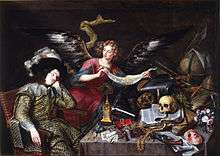
How can I tell that the past isn't a fiction designed to account for the discrepancy between my immediate physical sensations and my state of mind? ~ Douglas Adams
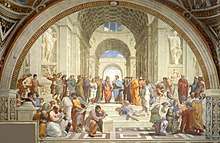
The past speaks to us in a thousand voices, warning and comforting, animating and stirring to action. What its great thinkers have thought and written on the deepest problems of life, shall we not hear and enjoy? ~ Felix Adler
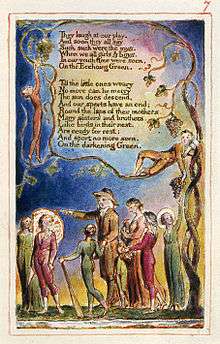
The past, too, is another country. Its ghosts may look strange and frightening and slightly misshapen in body and mind, but all the more reason then, to welcome them to our shores. ~ Martin Amis
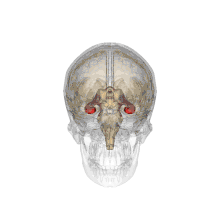
The past is never dead. It's not even past. ~ William Faulkner

The past is but the beginning of a beginning, and all that is or has been is but the twilight of the dawn. ~ H. G. Wells
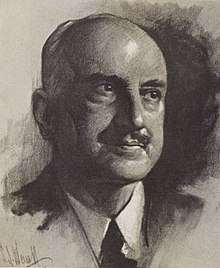
Those who cannot remember the past are condemned to repeat it. ~ George Santayana
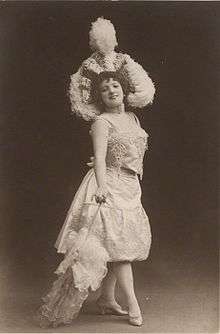
I know when I was a kid, I used to look at these pictures and listen to the songs of the Gay Nineties, and I used to say to my mother, 'Oh, I wish I had lived then; it was so gay and so wonderful.' [...] Now [the Jazz Age] seems very mysterious and wonderful to you, kids, and when you have kids, they'll say, 'Gee, Dad, those 50's, they were something.' ~ Helen Kane
The past is a term used to indicate the totality of events which occurred before a given point in time. The past is contrasted with and defined by the present and the future. The concept of the past is derived from the linear fashion in which human observers experience time, and is accessed through memory and recollection.
A
- How can I tell that the past isn't a fiction designed to account for the discrepancy between my immediate physical sensations and my state of mind?
- Douglas Adams, The Restaurant at the End of the Universe (1980), Chapter 29, said by "the man in the shack."
- The past speaks to us in a thousand voices, warning and comforting, animating and stirring to action. What its great thinkers have thought and written on the deepest problems of life, shall we not hear and enjoy? The future calls upon us to prepare its way. Dare we fail to answer its solemn summons?
- Is there any good reason why we cannot extend our multi-cultural generosity to include another dimension? That of time. The past, too, is another country. Its ghosts may look strange and frightening and slightly misshapen in body and mind, but all the more reason then, to welcome them to our shores.
- Martin Amis, Lecture given at the John F. Kennedy School of Government, Harvard University (30 January 1997).
- All the political, economic, administrative, and scientific issues of our times were unknown to the Prophet's companions. They did not sit on chairs in front of cameras, they had no media, no satellite TV. Does this prove that we are not allowed to use them? The fact that something did not exist in the past does not mean that it is forbidden.
- Former dean of Islamic law at Qatar University, Abd Al-Hamid Al-Ansari, Muslim Former Dean of Islamic Law at Qatar University Abd Al-Hamid Al-Ansari Speaks Out in Support of US Presence in the Middle East. MEMRI (July 26, 2007).
- . Former Dean of Islamic Law at Qatar University Abd Al-Hamid Al-Ansari Speaks Out in Support of US Presence in the Middle East
- One thing alone not even God can do,
To make undone whatever hath been done.- Aristotle, The Nicomachean Ethics of Aristotle, trans. Robert Williams (1879), book 6, chapter 2, p. 154. See also R. W. Browne's translation (1850), Book VI, Chapter II:
Therefore Agathon rightly says: "Of this alone even God is deprived, the power of making things that are past never to have been".
Same idea in John Milton, Paradise Lost, 9. 926. Pindar, Olympia. 2. 17. Pliny the Elder, Historia Naturalis, 2. 5. 10. Aristotle attributed these words to Agathon, an Athenian tragic poet who lived in the latter half of the fifth century B.C. In his column, "Today and Tomorrow", Walter Lippmann attributed the same idea to George Santayana: "He might meditate on Santayana's saying that not even God can change the past". New York Herald Tribune (June 11, 1951), p. 17. Reported as unverified in Respectfully Quoted: A Dictionary of Quotations (1989).
- Aristotle, The Nicomachean Ethics of Aristotle, trans. Robert Williams (1879), book 6, chapter 2, p. 154. See also R. W. Browne's translation (1850), Book VI, Chapter II:
B
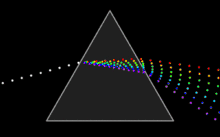
We must not confuse the present with the past. With regard to the past, no further action is possible. ~ Simone de Beauvoir
Live in the present and shape the future, do not be casting lingering looks to the distant past for the past has passed away, never again to return. ~ Subramanya Bharathi
You shouldn't chase after the past or place expectations on the future. What is past is left behind. ~ Gautama Buddha
- We must not confuse the present with the past. With regard to the past, no further action is possible.
- Simone de Beauvoir, The Ethics of Ambiguity (1947), Pour une morale de l'ambiguïté as translated by Full text online, Pt. III : The Positive Aspect of Ambiguity, Ch. 1 : The Aesthetic Attitude
- Our image of happiness is indissolubly bound up with the image of the past.
- Walter Benjamin, Theses on the Philosophy of History (1940), II.
- There is a secret agreement between past generations and the present one. Our coming was expected on earth. Like every generation that preceded us, we have been endowed with a weak Messianic power, a power to which the past has a claim. That claim cannot be settled cheaply.
- Walter Benjamin, Theses on the Philosophy of History (1940), II.
- Nothing that has ever happened should be regarded as lost for history. To be sure, only a redeemed mankind receives the fullness of its past — which is to say, only a redeemed mankind has its past become citable in all its moments. Each moment it has lived becomes a citation à l'ordre du jour — and that day is Judgement Day.
- Walter Benjamin, Theses on the Philosophy of History (1940), III.
- The true picture of the past flits by. The past can be seized only as an image which flashes up at the instant when it can be recognized and is never seen again.
- Walter Benjamin, Theses on the Philosophy of History (1940), V.
- To articulate the past historically does not mean to recognize it ‘the way it really was’ (Ranke). It means to seize hold of a memory as it flashes up at a moment of danger.
- Variant translation: To articulate what is past does not mean to recognize “how it really was.” It means to take control of a memory, as it flashes in a moment of danger.
- Walter Benjamin, Theses on the Philosophy of History (1940). As translated by Dennis Redmond (2001).
- Variant translation: To articulate what is past does not mean to recognize “how it really was.” It means to take control of a memory, as it flashes in a moment of danger.
- This is how one pictures the angel of history. His face is turned toward the past.
- Walter Benjamin, Theses on the Philosophy of History (1940), IX.
- Benjamin describes the revolutionary moment when the past suddenly bursts into the present, as if rising from the grave to rectify the wrongs it suffered at the hands of a banally triumphant progress. Thus Benjamin’s historical materialism implies a capacity to link otherwise separate and distant moments in time through a profound empathy. The empathy takes on a revolutionary character by disrupting the regularity of quotidian temporality. Without this sort of tie to the past, no critical stance in the present is possible.
- Russell Berman, Fiction Sets You Free: Literature, Liberty and Western Culture (2007), p. 18
- Live in the present and shape the future, do not be casting lingering looks to the distant past for the past has passed away, never again to return.
- PAST, n. That part of Eternity with some small fraction of which we have a slight and regrettable acquaintance. A moving line called the Present parts it from an imaginary period known as the Future. These two grand divisions of Eternity, of which the one is continually effacing the other, are entirely unlike. The one is dark with sorrow and disappointment, the other bright with prosperity and joy. The Past is the region of sobs, the Future is the realm of song. In the one crouches Memory, clad in sackcloth and ashes, mumbling penitential prayer; in the sunshine of the other Hope flies with a free wing, beckoning to temples of success and bowers of ease. Yet the Past is the Future of yesterday, the Future is the Past of to-morrow. They are one -- the knowledge and the dream.
- Ambrose Bierce, The Devil's Dictionary (1911).
- You shouldn't chase after the past or place expectations on the future. What is past is left behind.
- Gautama Buddha, Bhaddekaratta Sutta: An Auspicious Day, MN 131, (1997) translated from the Pali by Thanissaro Bhikkhu
C
- If you are living in the past or in the future, you will never find a meaning in the present.
- Fausto Cercignani in: Brian Morris, Simply Transcribed. Quotations from Fausto Cercignani, 2013, p. 9.
- Our yesterdays present irreparable things to us; it is true that we have lost opportunities which will never return, but God can transform this destructive anxiety into a constructive thoughtfulness for the future. Let the past sleep, but let it sleep on the bosom of Christ. Leave the Irreparable Past in His hands, and step out into the Irresistible Future with Him.
- Oswald Chambers My Utmost for His Highest (1956). Section "December 31".
D
- Not heaven itself upon the past has power;
But what has been, has been, and I have had my hour.- John Dryden, Imitation of Horace (1685), Book III, Ode 29 line 69-72.
- It is a mistake to think that the past is dead. Nothing that has ever happened is quite without influence at this moment. The present is merely the past rolled up and concentrated in this second of time. You, too, are your past; often your face is your autobiography; you are what you are because of what you have been; because of your heredity stretching back into forgotten generations; because of every element of environment that has affected you, every man or woman that has met you, every book that you have read, every experience that you have had; all these are accumulated in your memory, your body, your character, your soul. So with a city, a country, and a race; it is its past, and cannot be understood without it.
E
- Historians are really great at predicting the past. But the future is for prophets, and the track records of most prophets is dismal.
- Joseph J. Ellis, interviewed in TIME, October 29, 2018 p. 52.
F
- The past is never dead. It's not even past.
- William Faulkner, Requiem for a Nun (1951), Act 1, sc. 3; this has sometimes been paraphrased or misquoted as "The past isn't over. It isn't even past."
H
- A generation which ignores history has no past — and no future.
- Robert A. Heinlein, Time Enough for Love (1973).
J
- I like the dreams of the future better than the history of the past, — so good night!
- Thomas Jefferson, Letter to John Adams (1 August 1816).
- So, change how you will, but never forget your past: it’s the ferryman you have to pay to get to your future.
- Stephen Graham Jones, The Snake & its Skin, in Robin D. Laws (ed.) The Lion and the Aardvark (2013), ISBN 978-1-908983-02-2, p. 200
K
- I know when I was a kid, I used to look at these pictures and listen to the songs of the Gay Nineties, and I used to say to my mother, 'Oh, I wish I had lived then; it was so gay and so wonderful.' [...] Now [the Jazz Age] seems very mysterious and wonderful to you, kids, and when you have kids, they'll say, 'Gee, Dad, those 50's, they were something.' [...] I really think it goes in cycles. When your kids come in and say 'Gee, Dad, I wish we had done that,' and so on and so forth, it's the same thing. I don't think it's changed a great deal.
- Helen Kane in a 1959 interview.
- [A]t the crossroads of our history, we need to turn our backs on the past.
- F. W. de Klerk, speech to the Congress of the National Party of Natal, Durban (25 September 1992)
- If we dwell on real or imagined sins of the past, we shall never be able to find one another in the present, nor shall we be able to work together on building the future.
- F. W. de Klerk, speech to the Good-will Foundation (9 March 1991)
L
- Not to the present is our hour confined,
The great and shadowy future is assigned
To be the glorious empire of the mind.
The past was once the future, and it wrought
In the high presence of on-looking thought ;
All that we have, was by its efforts brought.
To-day creates to-morrow, and the tree
Of good or ill grows in past hours, what we
Make for the future — certain is to be.- Letitia Elizabeth Landon, Ethel Churchill (or The Two Brides) (1838), Vol III. Chapter 8
Compare Thomas Taylor, below.
- Letitia Elizabeth Landon, Ethel Churchill (or The Two Brides) (1838), Vol III. Chapter 8
P
- The past and future are veiled; but the past wears the widow's veil; the future, the virgin's.
- Jean Paul, as quoted in Treasury of Thought (1872) by Maturin M. Ballou, p. 521.
S
- Progress, far from consisting in change, depends on retentiveness. When change is absolute there remains no being to improve and no direction is set for possible improvement: and when experience is not retained, as among savages, infancy is perpetual. Those who cannot remember the past are condemned to repeat it. This is the condition of children and barbarians, in whom instinct has learned nothing from experience.
- George Santayana, The Life of Reason (1905), vol. 1, chapter 12, p. 284.
- How can we live without our lives? How will we know it's us without our past?
- John Steinbeck, The Grapes of Wrath, p. 120 (1939).
- He who keeps fleeing, flees from his own past.
T
- For the past was once the future, and the present, but the future is not yet the past, but has the whole of its essence in existing in some after time.
- Thomas Taylor, Proclus. The Theology of Plato Vol II, 1816.
- The heart opens itself to the hope that the misfortunes of the past will be replaced by fruitful dialogue.
- Elio Toaff "Pope Speaks in Rome Synagogue, in the First Such Visit on Record" by E. J. Dionne Jr, The New York Times, 13 April 1986, retrieved 9 August 2010.
W
- The past is but the beginning of a beginning, and all that is or has been is but the twilight of the dawn.
- H. G. Wells, The Discovery of the Future (1901).
Hoyt's New Cyclopedia Of Practical Quotations
- Quotes reported in Hoyt's New Cyclopedia Of Practical Quotations (1922), p. 581-83.
- The present contains nothing more than the past, and what is found in the effect was already in the cause.
- Henri Bergson, Creative Evolution (1907), Chapter I.
- No traces left of all the busy scene,
But that remembrances says: The things have been.- Samuel Boyse, The Deity.
- But how carve way i' the life that lies before,
If bent on groaning ever for the past?- Robert Browning, Balaustion's Adventure.
- Thou unrelenting past.
- William Cullen Bryant, To the Past.
- The light of other days is faded,
And all their glories past.- Alfred Bunn, The Maid of Artois.
- The age of chivalry is gone.
- Edmund Burke, Reflections on the Revolution in France.
- John Anderson, my jo, John,
When we were first acquent,
Your locks were like the raven,
Your bonny brow was brent.- Robert Burns, John Anderson.
- Gone—glimmering through the dream of things that were.
- Lord Byron, Childe Harold's Pilgrimage, Canto II (1812), Stanza 2.
- The best of prophets of the future is the past.
- Lord Byron, Letter. Jan. 28, 1821.
- The Present is the living sum-total of the whole Past.
- Thomas Carlyle, Essays, Characteristics.
- O, to bring back the great Homeric time,
The simple manners and the deeds sublime:
When the wise Wanderer, often foiled by Fate,
Through the long furrow drave the ploughshare straight.- Mortimer Collins, letter to the Rt. Hon. B. Disraeli, M. P. Pub. anon. 1869. "Ploughing his lonely furrow." Used by Lord Rosebery. July, 1901.
- Listen to the Water-Mill:
Through the live-long day
How the clicking of its wheel
Wears the hours away!
Languidly the Autumn wind
Stirs the forest leaves,
From the field the reapers sing
Binding up their sheaves:
And a proverb haunts my mind
As a spell is cast,
"The mill cannot grind
With the water that is past."- Sarah Doudney, Lesson of the Water-Mill.
- Not heaven itself upon the past has power;
But what has been, has been, and I have had my hour.- John Dryden, Imitation of Horace, Book III. Ode XXIX, line 71.
- Ils sont passés ces jours de fête.
- The days of rejoicing are gone forever.
- Jacques Du Lorens, Le Tableau Parlant.
- Oh le bon temps où étions si malheureux.
- Oh! the good times when we were so unhappy.
- Alexandre Dumas, Le Chevalier d'Harmental, II. 318.
- Un jeune homme d'un bien beau passé.
- A young man with a very good past.
- Heine of Alfred de Musset. Quoted by Swinburne, Miscellanies, p. 233.
- O Death! O Change! O Time!
Without you, O! the insufferable eyes
Of these poor Might-Have-Beens,
These fatuous, ineffectual yesterdays.- William Ernest Henley, Rhymes and Rhythms, XIII.
- Praise they that will times past, I joy to see
My selfe now live: this age best pleaseth mee.- Robert Herrick, The Present Time Best Pleaseth.
- O God! Put back Thy universe and give me yesterday.
- Henry Arthur Jones, Silver King.
- We are always acting on what has just finished happening. It happened at least 1/30th of a second ago. We think we’re in the present, but we aren’t. The present we know is only a movie of the past.
- Ken Kesey, As quoted by Tom Wolfe in The Electric Kool-Aid Acid Test (1968) Ch. 11.
- Some say that the age of chivalry is past, that the spirit of romance is dead. The age of chivalry is never past so long as there is a wrong left unredressed on earth.
- Charles Kingsley, Life, Volume II, Chapter XXVIII.
- There’s a resistance to the idea that things can be learned from the past, but the past is a kind of closet full of human beings who have lots to say; the door should be opened once in a while.
- Enjoy the spring of love and youth,
To some good angel leave the rest;
For time will teach thee soon the truth,
There are no birds in last year's nest.- Henry Wadsworth Longfellow, It is not always May.
- We remain
Safe in the hallowed quiets of the past.- James Russell Lowell, The Cathedral, line 234.
- Prisca juvent alios; ego me nunc denique natum Gratulor.
- The good of other times let people state;
I think it lucky I was born so late. - Ovid, Ars Amatoria, III. 121. Translation by Sydney Smith.
- The good of other times let people state;
- Weep no more, lady, weep no more,
Thy sorrowe is in vaine,
For violets pluckt, the sweetest showers
Will ne'er make grow againe.- Thomas Percy, Reliques, The Friar of Orders Gray. See John Fletcher, The Queen of Corinth, Act III, scene 2.
- O there are Voices of the Past,
Links of a broken chain,
Wings that can bear me back to Times
Which cannot come again;
Yet God forbid that I should lose
The echoes that remain!- Adelaide Anne Procter, Voices of the Past.
- In tanta inconstantia turbaque rerum nihil nisi quod preteriit certum est.
- In the great inconstancy and crowd of events, nothing is certain except the past.
- Seneca the Younger, De Consolatione ad Marciam, XXII.
- What's past is prologue.
- William Shakespeare, The Tempest (c. 1610-1612), Act II, scene 1, line 253.
- The past Hours weak and gray
With the spoil which their toil
Raked together
From the conquest but One could foil.- Percy Bysshe Shelley, Prometheus Unbound (1820), Act IV, scene 1.
- I need not ask thee if that hand, now calmed,
Has any Roman soldier mauled and knuckled,
For thou wert dead, and buried and embalmed,
Ere Romulus and Remus had been suckled:
Antiquity appears to have begun
Long after that primeval race was run.- Horace Smith, Address to the Mummy in Belzoni's Exhibition.
- Oh, had I but Aladdin's lamp
Tho' only for a day,
I'd try to find a link to bind
The joys that pass away.- Charles Swain, Oh, Had I but Aladdin's Lamp.
- The eternal landscape of the past.
- Alfred Tennyson, In Memoriam A.H.H. (1849), Part XLVI.
- Oh seize the instant time; you never will
With waters once passed by impel the mill.- Richard Chenevix Trench, Poems (Ed. 1865), p. 303. Proverbs, Turkish and Persian.
- Many a woman has a past; but I am told she has at least a dozen, and that they all fit.
- Oscar Wilde, Lady Windermere's Fan, Act I. A Woman with a Past. Title of a Novel by Mrs. Berens. Pub. 1886.
- Though nothing can bring back the hour
Of splendour in the grass, of glory in the flower.- William Wordsworth, Ode, Intimations of Immortality, Stanza 10.
- For old, unhappy, far-off things,
And battles long ago.- William Wordsworth, The Solitary Reaper.
- That awful independent on to-morrow!
Whose work is done; who triumphs in the past;
Whose yesterdays look backward with a smile
Nor, like the Parthian, wound him as they fly.- Edward Young, Night Thoughts (1742-1745), Night II, line 322.
See also
References
- Klopsch, Louis, 1852-1910 (1896). Many Thoughts of Many Minds.
External links
This article is issued from
Wikiquote.
The text is licensed under Creative
Commons - Attribution - Sharealike.
Additional terms may apply for the media files.
